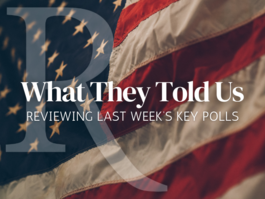13% Expect Reduced Spending Under New Obama Budget
Most voters don’t expect government spending to be reduced under President Obama’s new budget proposal. But even if Congress and the president come to a budget deal, voters think it’s unlikely the deficit will actually be reduced.
The latest Rasmussen Reports national telephone survey finds that only 13% of Likely U.S. Voters think government spending will be reduced under the president’s budget plan. Fifty percent (50%) think spending will keep going up, while 24% expect it to remain about the same. Another 13% are not sure. (To see survey question wording, click here.)
Win an IPad: Take the Rasmussen Challenge.
(Want a free daily e-mail update ? If it's in the news, it's in our polls). Rasmussen Reports updates are also available on Twitter or Facebook.
The survey of 1,000 Likely Voters was conducted on April 7-8, 2013 by Rasmussen Reports. The margin of sampling error is +/- 3 percentage points with a 95% level of confidence. Field work for all Rasmussen Reports surveys is conducted by Pulse Opinion Research, LLC. See methodology.

















